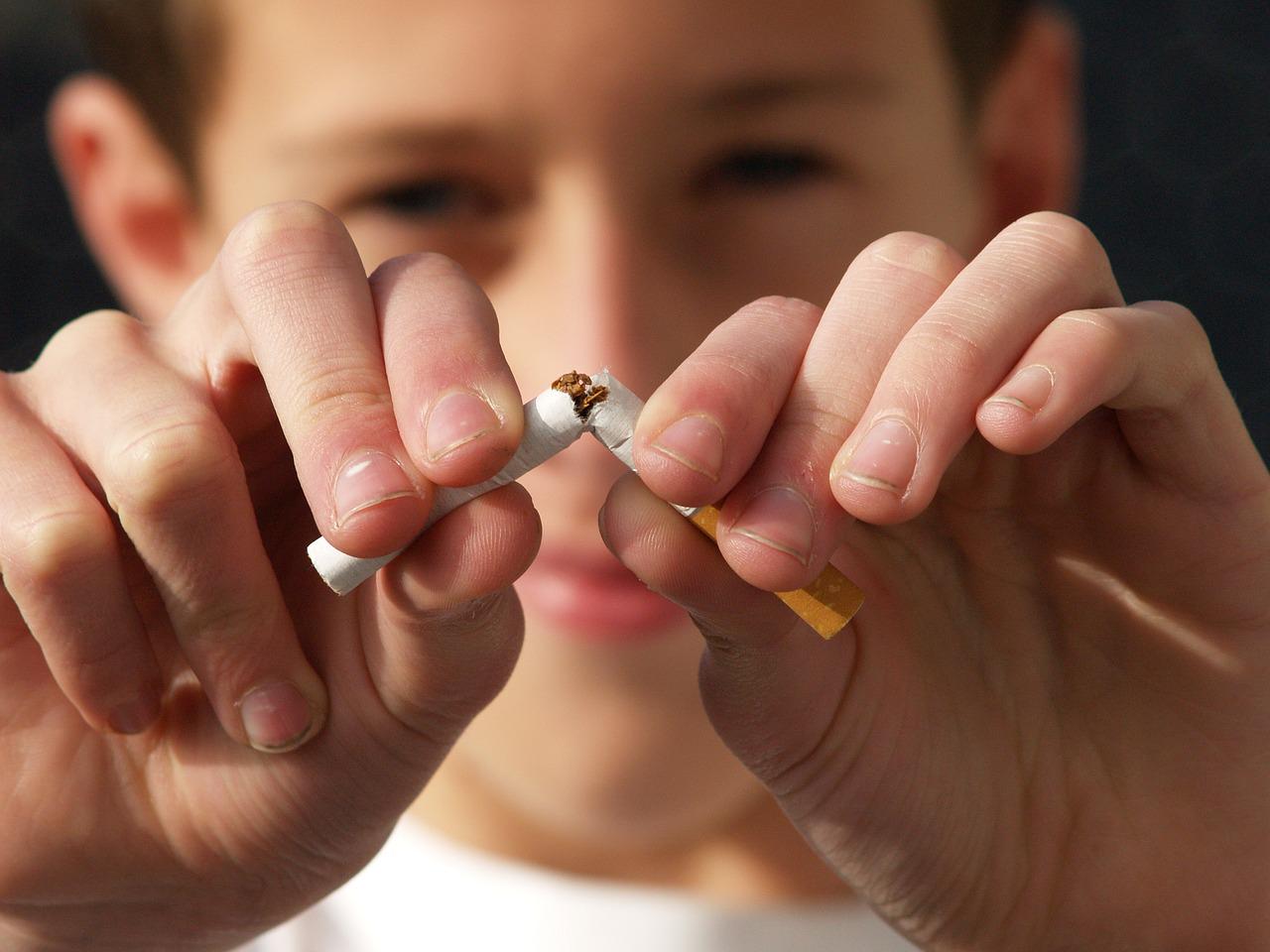Individual rights are often not prioritised in Malaysian culture that allows government interference in nearly every aspect of life – from business to speech, dress, and even sex.
However, the same excessive State control over our daily lives is precisely what may be the stumbling block to Health Minister Khairy Jamaluddin’s radical proposal to ban smoking and vaping for future generations.
Anyone born from January 1, 2005 – who will turn 18 next year, the legal age for smoking – will be prohibited from ever (legally) buying tobacco and vape products in their lifetime.
Malaysians in general permit, what I consider to be excessive, government intervention over their lives in exchange for undisturbed income and low cost of living.
In other words, harsh legislated punishments and breaches of constitutional rights – such as the right to freedom of speech and expression – are regularly tolerated in a de facto social contract with the government to ensure good quality of life.
But when the government fails to uphold its side of the bargain because of factors outside its control – amid rising inflation due to global supply chain disruptions from the Covid-19 pandemic and Russia’s war in Ukraine – Malaysians will inevitably want to cling to the few things that they have control over, like lifestyle habits.
Threatening to stop someone from buying cigarettes, considered to be a small and affordable luxury when times are hard, may anger working class Malaysians who just want to have a relaxing smoke after a long day’s work.
Even though Khairy’s touted “generation end game” only targets those who are currently in their teenage years, the spectre of a blanket ban may still be off-putting to some who perceive the proposed legislation as an unnecessary removal of their last bit of comfort, when everything else has been taken away from them.
It is in this scenario when the issue of individual rights and personal liberty resonates most strongly.
The racial/ religious context in Malaysia cannot be ignored either.
“As Malay-Muslims pretty much only have one acceptable vice (smoking), unlike non-Muslims who are legally free to partake in alcohol consumption and premarital sex, the proposed generational ban on smoking and vaping may be perceived by some Muslims to be unfair.”
Boo Su-Lyn, editor-in-chief of CodeBlue
This leads to calls for bans to be extended to alcohol and even pubs and nightclubs. While Khairy, a progressive politician, may not entertain such demands, there is no guarantee that his successor or the next government will not heed these racially charged calls, should Parliament approve the age-based prohibition of tobacco and vape.
As smoking prevalence is highest among the bottom 40 per cent (B40) of income earners at 65 per cent, MPs representing lower-income constituencies may also be hard pressed to support the generational smoking ban as cigarettes are the only available “luxury” for the poor, unlike higher income Malaysians with access to various other leisurely activities.
Health advocates cannot ignore the strength of potential political pressure against science-based policies from technocrats in the Ministry of Health (MOH). Dismissing the will of the people, represented by Members of Parliament, is a fundamental mistake that fails to see the value and necessity of obtaining popular support for any policy – particularly paternalistic ones – beyond data and science.
As a libertarian, I am uncomfortable with the position taken by prohibition advocates who frame the debate on the proposed generational tobacco ban as personal liberty versus public safety.
A blanket ban on tobacco and vape consumption arguably goes beyond what is necessary to protect public health, since the aim of instituting smoke-free places in public – which have been expanded over time in Malaysia from 2004 and now includes open-air eateries – is to protect non-smokers from secondhand smoke.
“The concept of personal freedom includes the right to do and consume things that are pleasurable despite harming your own body – because the State should not take away our bodily autonomy.”
Boo Su-Lyn, editor-in-chief of CodeBlue
Banning tobacco and vape for people of a certain age or cohort also does not make sense from a scientific or legal perspective. If a particular product is banned because of its harm to consumers, then its prohibition should apply to everyone regardless of age, like illegal narcotics listed in the Dangerous Drugs Act.
Arguing that it is impractical to completely ban cigarettes is no different from anti-prohibition advocates who question the practicality of the tobacco generation end game due to the huge black market in Malaysia.
On the argument of health care cost savings from banning smoking – which Khairy estimates to be RM8 billion in 2030 from the treatment of just three smoking-related illnesses: lung cancer, heart disease, and chronic obstructive pulmonary disease – one can argue that the net costs of smokers for the public health care system might actually be positive and aren’t clearly negative.
“Smokers will incur more health care costs during their lives, but they will also die sooner, thus costing less in the final years of life when a significant amount of lifetime health care costs will be incurred. For countries with generous retirement and pension plans, the earlier deaths of smokers might yield significant savings,” writes the Cato Institute, an American libertarian think tank.
This is a rather morbid perspective, but gels with smokers’ arguments that they have the right to kill themselves with a bad habit, just like how other people have the right to eat burgers and drink teh tarik on their way to an early death from heart attack.
Individual Right To Health For Teens And Kids
A research paper published in 2005 in the British Medical Journal calls for greater advocacy of individual rights in tobacco control policies to fight public perception that tobacco control advocates do not favour personal freedom, to directly counter the tobacco industry’s perceived advantage in promoting individual rights, and to appeal to the highest ethical standards by prioritising personal autonomy over commercial concerns.
“As a general posture, policy should be designed to be responsive to individual rights of both smokers and non-smokers, with right to life/ health (that is, rights of non-smokers) having priority. Policy could be framed so that smoking would not be permitted in co-occupied places, such as offices, sidewalks, and parks, but that appropriately informed adults would, with some restrictions, still be entitled to smoke in private.”
“Khairy and other tobacco control advocates must address individual liberty concerns with the generational ban on smoking and vaping to ensure the passage of the Tobacco and Smoking Control Bill in Parliament, after successfully crossing the first hurdle in Cabinet.”
Boo Su-Lyn, editor-in-chief of CodeBlue
Muar MP Syed Saddiq Syed Abdul Rahman – who heads Muda, a progressive party that represents young people – has indicated that he may not vote for the tobacco bill.
The 29-year-old lawmaker told me that he had three concerns with the proposed cohort ban on smoking and vaping: the impact on small retailers, removal of personal liberties and a slippery slope to racially charged calls for the ban of other products like alcohol, and higher illicit cigarette trade.
Respiratory physician Dr Helmy Haja Mydin, who is also Khairy’s technical advisor on the tobacco bill, makes a strong argument that the perceived individual right to smoke is made illusory by addiction to nicotine that removes one’s personal choice to quit whenever they want to.
When it comes to those aged below 18, their individual freedom and right to be free of addiction is arguably violated when they smoke their first cigarette, not knowing or appreciating that nicotine is one of the most addictive substances in the world.
Young children also lose their right to health when they are exposed to very harmful secondhand smoke from their parents, even if the home is private property.
No Punishment For Individual Consumption Or Possession Of Tobacco, Vape
More and more people are moving away from smoking. According to a global tobacco trends report released by the World Health Organization (WHO) last November, the number of tobacco users around the world dropped to 1.30 billion compared to 1.32 billion in 2015. This number is expected to drop to 1.27 billion by 2025.
While I support Khairy’s overarching ambition of a smoke-free country, there must be sufficient supporting measures to accompany a ban on smoking for the next generation.
The government cannot just rely on the stick to reduce smoking, without expanding access to nicotine replacement therapy (NRT) like nicotine gum and patches or quit-smoking services, besides increasing public communications on these products and services.
The tobacco bill also should not mete out any punishment whatsoever for individual consumption or possession of tobacco or vape, be it fines or imprisonment.
“Penalising those of a certain age or generation for the consumption of a particular product that is legal for everyone else breaches our constitutional right to equality under the law.”
Boo Su-Lyn, editor-in-chief of CodeBlue
Enforcement should be exclusively targeted against retail. A grace period should also be given for the necessary communications and infrastructure to be put into place to enforce the generational tobacco ban.
It is unrealistic and also unfair to begin enforcement in less than six months in 2023. Better to get it right the first time, even if it takes a little longer, as failure from the onset could kill the government’s entire prohibition attempt.
Exclude Vape From Generational Ban
While I support a generational ban on tobacco in a dying industry, I am less inclined towards including vape in the prohibition. Health agencies in both the UK and New Zealand treat e-cigarettes as a tool to help smokers quit; New Zealand excludes vape from its proposed generational tobacco ban that will start with the 2008 generation.
Vape is, of course, not harmless – both the UK’s NHS and New Zealand’s Health Ministry do not claim such, but these health authorities state that vaping is much less harmful than smoking as e-cigarettes do not produce tar or carbon monoxide, two of the most harmful elements in tobacco smoke.
“While nicotine is the addictive substance in cigarettes, it’s relatively harmless. Almost all of the harm from smoking comes from the thousands of other chemicals in tobacco smoke, many of which are toxic,” states the NHS. “There’s no evidence so far that vaping causes harm to other people around you.”
Choosing the lesser evil may be a more effective public health approach than the unrealistic ambition of completely banning all tobacco and vape products in the years to come.
Having said that, Malaysia’s vape and e-cigarette industry is completely unregulated, unlike the UK that provides vape in the NHS’ stop-smoking service, so regulation would be necessary if MOH were to use vape as a smoking cessation tool.
The goal of a tobacco-free generation is commendable, but, like with other public health issues, legal coercion should be the secondary and not primary tool to change personal health behaviours.

Boo Su-Lyn is CodeBlue editor-in-chief. She is a libertarian, or classical liberal, who believes in minimal state intervention in the economy and socio-political issues.








